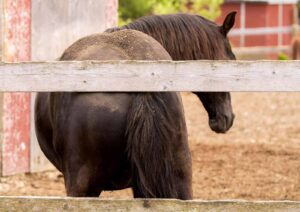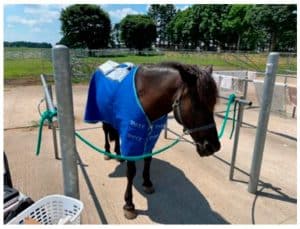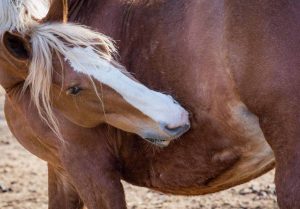
Horse Hydration: Your Questions Answered
We consulted two equine nutritionists to answer your burning questions about horse hydration. Here’s what you need to know.

We consulted two equine nutritionists to answer your burning questions about horse hydration. Here’s what you need to know.

Don’t forget horses need calories to keep cool in the heat.

Experts share the causes of and treatment options and prevention strategies for this uncomfortable skin reaction in this article from the Summer 2023 issue of The Horse.

Keeping competition horses well hydrated isn’t always easy. Our nutritionist offers tips to help prevent dehydration.

New research shows that electrolyte supplementation might not be necessary for horses in light to moderate work.

Dr. Aja Harvey explains why a horse might rub his tail and what owners can do to stop it.

Researchers have determined an ice blanket might be more effective for cooling horses than water or fans.

Water is one of the essential nutrients a horse’s body needs to perform a number of life-support functions. Here’s what to remember about supplying your horse with water.

Alleviating these unsightly skin lesions proves challenging in many cases. Sponsored by KineticVet.

The key to keeping your allergy-prone horse comfortable is figuring out the causes of his reactions and avoiding them. Learn more about allergic reactions in horses with this step-by-step visual guide. Sponsored by KineticVet.

An owner seeks advice on managing a senior horse with Cushing’s disease during a heat wave.

Lumps, bumps, coughs, wheals, and wheezes: a basic overview of equine allergies.

Heat, humidity, and race distance significantly increase the risk of exertional heat illness in Thoroughbred racehorses on British tracks.

Our nutritionist shares how you can improve your horse’s coat, even during winter.

You might need to make adjustments to keep your horse healthy and happy through the winter.

Horses’ overall water consumption decreases as its temperature drops.
Stay on top of the most recent Horse Health news with
© 2022 Copyright Statement dolor sit amet, consetetur sadipscing User Terms, sed diam nonumy eirmod tempor invidunt ut labore et dolore magna aliquyam erat, sed diam voluptua. At vero eos et accusam et justo duo dolores et ea rebum. Stet clita kasd gubergren, no sea takimata sanctus est Lorem ipsum dolor sit amet.
"*" indicates required fields